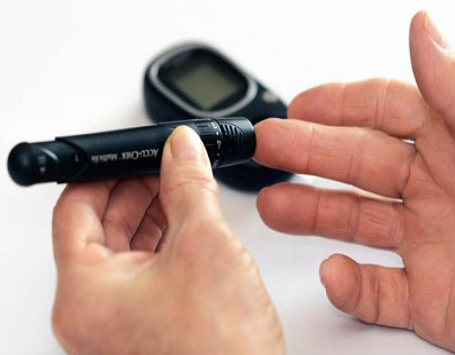How to Manage Blood Sugar Levels in Seniors: Tips for Healthy Aging
 Did you know that nearly 1 in 3 people ages 65 and older has diabetes? This shows how important it is to manage blood sugar levels.
Did you know that nearly 1 in 3 people ages 65 and older has diabetes? This shows how important it is to manage blood sugar levels.
As we get older, keeping blood sugar levels healthy becomes very important. Seniors can have more changes in blood sugar. This makes good management a key part of staying healthy.
Changes with age, medicines, and daily habits can affect blood sugar. That’s why it’s important to watch these levels closely. Here are simple tips to help seniors control their blood sugar.
Focus on a Balanced Diet
Eating a balanced diet helps manage blood sugar. Seniors should choose whole foods most of the time. This means eating less processed food and more natural options.
Fruits, vegetables, whole grains, and lean proteins are all good choices. Healthy fats like nuts and olive oil can also help. These foods give the body steady energy.
Low-glycemic foods are best for blood sugar control. They release sugar slowly into the blood. Good examples are sweet potatoes, beans, and non-starchy vegetables.
Monitor Portion Sizes
Watching how much you eat is important for blood sugar control. Eating too much, even of healthy food, can raise blood sugar. Seniors should try to eat the right amount at each meal.
Using smaller plates can help limit portions. Measuring food is another easy way to stay on track. It also helps to read labels and check serving sizes.
These small changes can make a big difference. They help avoid extra calories and sugar spikes. Keeping portions steady supports better health.
Stay Hydrated
Drinking enough water is critical to blood sugar management in seniors. It supports the body in many ways. One key role is helping the kidneys remove extra sugar.
Seniors should aim for about eight glasses of water each day. This amount can change with activity or weather. More fluids may be needed in hot climates or after exercise.
Herbal teas and clear broths can also help with hydration. These drinks are good choices without added sugar. Staying hydrated keeps the body working well.
Regular Physical Activity
Staying active helps control blood sugar levels. Exercise makes the body use insulin better. It also helps lower blood sugar after meals.
Seniors should try to get 150 minutes of exercise each week. Walking, swimming, or biking are great options. These activities are gentle and easy to start.
Strength training is also important. Doing it two or three times a week builds muscle. More muscle helps the body manage sugar better.
Manage Stress Effectively
Too much stress can raise blood sugar levels. Stress affects hormones in the body. This can make blood sugar harder to control.
Simple activities can help reduce stress. Yoga, meditation, and deep breathing are good options. These can calm the mind and body.
Seniors should also do things they enjoy. Hobbies and time with friends can bring joy. Feeling relaxed supports better health overall.
Embracing Healthy Aging
Managing blood sugar in seniors involves making healthy choices. This includes eating well, staying active, and monitoring sugar levels. These steps can help seniors feel better and avoid health problems.
Consulting a healthcare professional can give seniors personal advice. A doctor can help create a plan for blood sugar control. Taking care of blood sugar leads to a healthier, more active life.